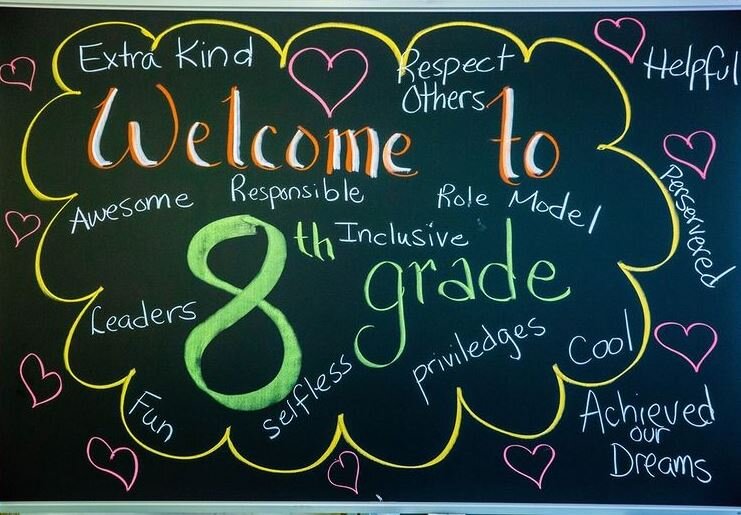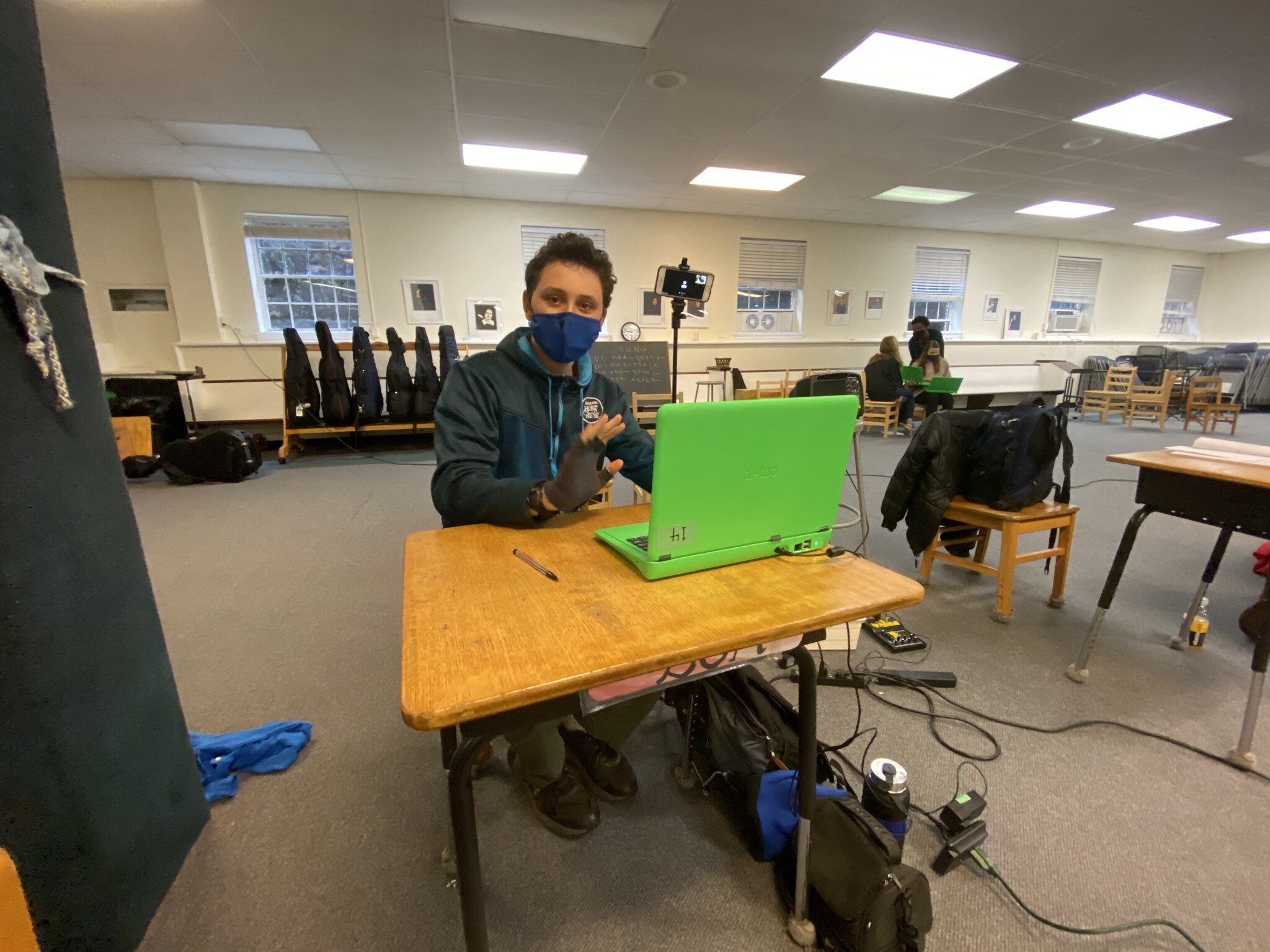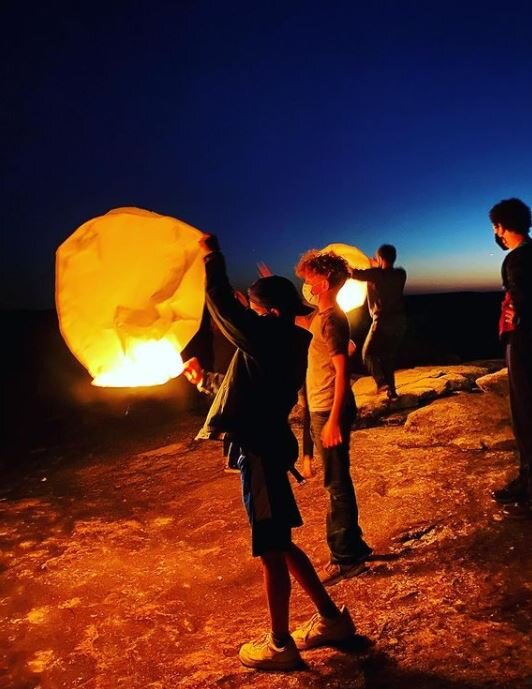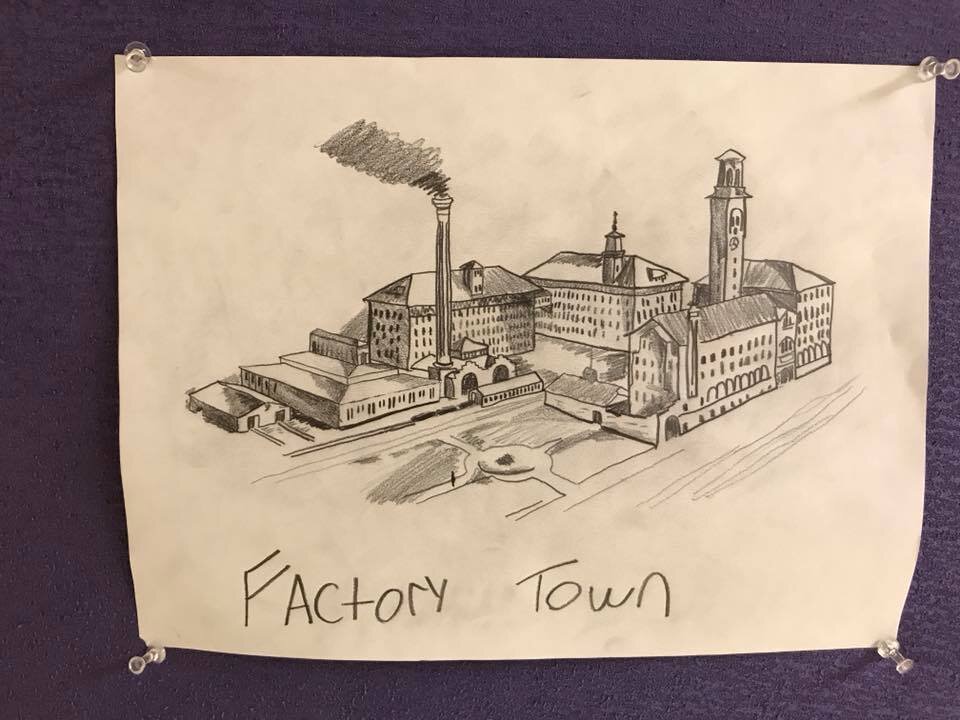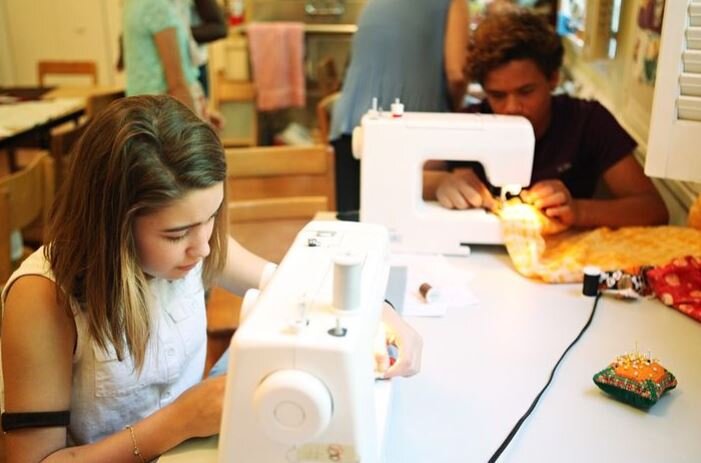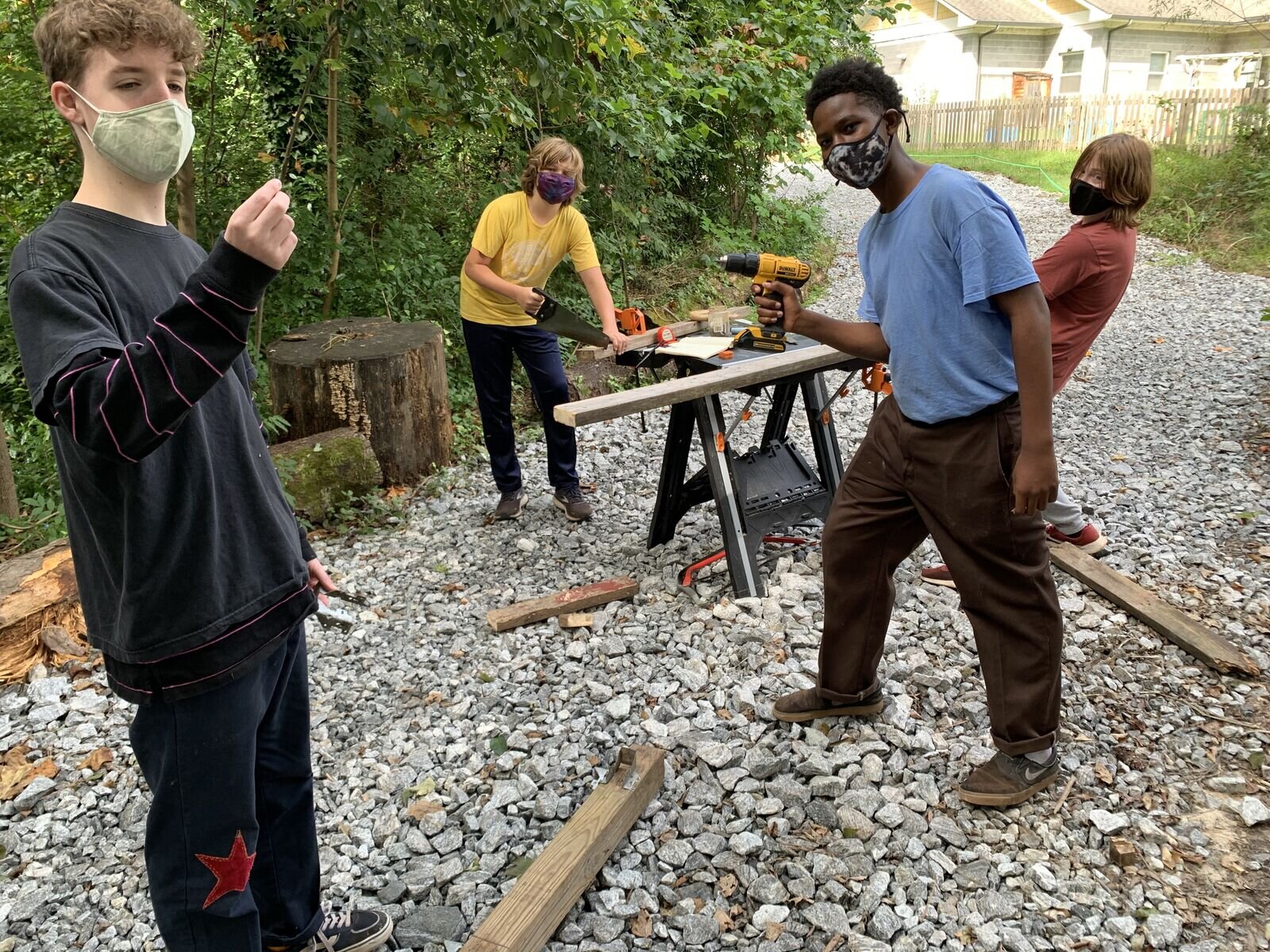Middle School
Grade 8
Class Plays
Beginning in Grade One and continuing through middle school, every student participates in a class play. These performances are viewed as an integral component of that year's curriculum, often with the subject taken from the class's literary or historical studies. In addition to a stage role for every student, the plays are a vital component of school life – with enriching opportunities for parents to assist in costume design, scenery, and stage production.
In Grade Eight, the play – along with the class trip – celebrates the rich community of class and teacher and provides a focal point for expressing the communal spirit. The play, which is typically performed on a professional stage for the enjoyment of the entire school community, is carefully selected to reflect the abilities and sensibilities of that particular class. From Oliver and Into the Woods, to The Man Who Came to Dinner, the play becomes an important opportunity for the class to showcase its talents and imprint an indelible memory on the school's collective consciousness.
2023-24 Grade 8 Class Teacher: Mr. Smith
Algebra & Platonic Solids
Beginning in Grade Seven, math classes are tracked to accommodate the different rates of learning of more abstract math concepts. The individual attention afforded by the smaller class size helps ensure that students are internalizing these challenging concepts. By the end of Grade Eight, students will have completed Algebra 1, a necessary preparation for high school.
Also in Grade Eight, students are exposed to the study of Platonic solids, polygons with congruent sides – the three-sided tetrahedron, the cube or hexahedron, the eight-sided octahedron and 12-sided dodecahedron. Not only do students explore these geometric shapes studied since ancient times, but they also craft beautiful three-dimensional paper models of each polygon.
Research Papers
In preparation for high school, the scope and expectations of research projects intensify in the middle school culminating in the eighth grade when students write a paper or conduct an experiment for each main lesson block. One example is the biography assignment in which each student conducts an extensive research project into the life and contribution of an historical figure. Assignments such as this build necessary skills including note taking, time management and sourcing reliable information. But they also focus the student inwardly; providing an emotional connection to the subject that nurtures existing interest and sparks further exploration.
Main Lessons
History: 1700 to the present. Revolutions: the French, the Industrial, and the American. Napoleon. Industrial Revolution: rise of the factory system, city life and child labor; early attempts at social reform. American history: colonization to Twentieth Century. Debates over differing points of view held by the British and the colonists. Studies of the Declaration of Independence and the Constitution. Moral questions of extreme wealth and extreme poverty. Conversations about a world of technology, free trade, war and peace. Studies include the lives of Harriet Tubman, Abraham Lincoln, and Robert E. Lee, as well as Mahatma Gandhi and Martin Luther King.
Literature: Shakespeare. Poetry – epic and dramatic. Haiku poetry. Stories about different peoples of the world, their folklore, and poetry. Novels including The Scarlet Pimpernel, The Master Puppeteer, and Uncle Tom's Cabin.
English and Grammar: Review all grammar and syntax, including subordinate and independent clauses. Business and practical writing. Spelling and vocabulary. Original compositions take the form of newspaper articles and editorials. Writing skits or short plays. Class play – Shakespeare, musical, etc. Emphasis on note taking and journaling. Oral presentations using weekly news reporting.
Geography: Geography of Asia, Australia, and Antarctica. World Geography: contrasts. Consideration of maps and how they influence our perception of the world. Studies may include philosophies of Confucianism, Daoism, Buddhism, and Shintoism.
Science: Chemistry: proteins, fats, carbohydrates. Reagents for testing. Physiology: bones and muscles, body chemistry. Physics: sound, heat, current electricity, hydraulics, aerodynamics, meteorology.
Mathematics: Practical mathematics. Percent. Signed numbers. Equations. Mensuration. Number bases. Set concepts. Computers and the binary system.
Drawing, Painting and Modeling: Exact geometric drawing, three-dimensional works. Theorems, volumes of solids, laws of loci. Solid geometry. Black and white drawing with charcoal. Bamboo, ink brush, and landscape painting. Calligraphy. The human head and human bones in clay.


